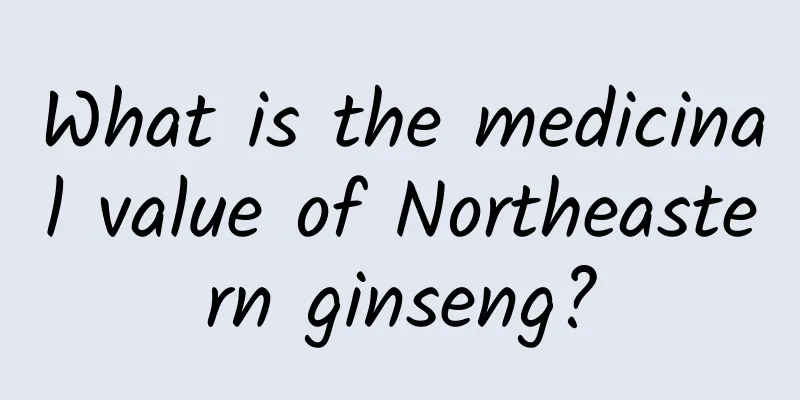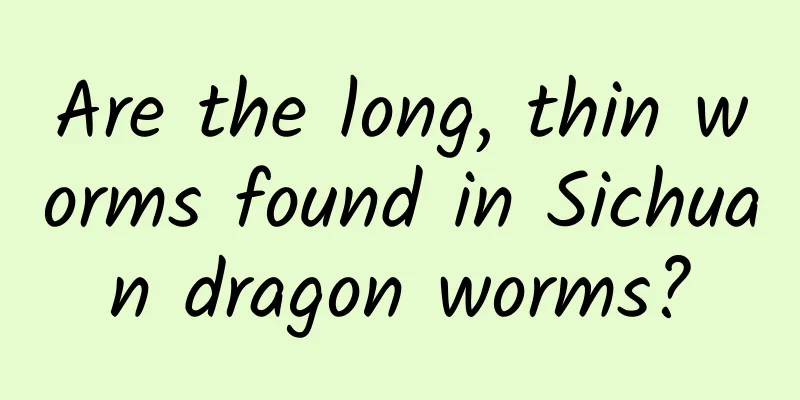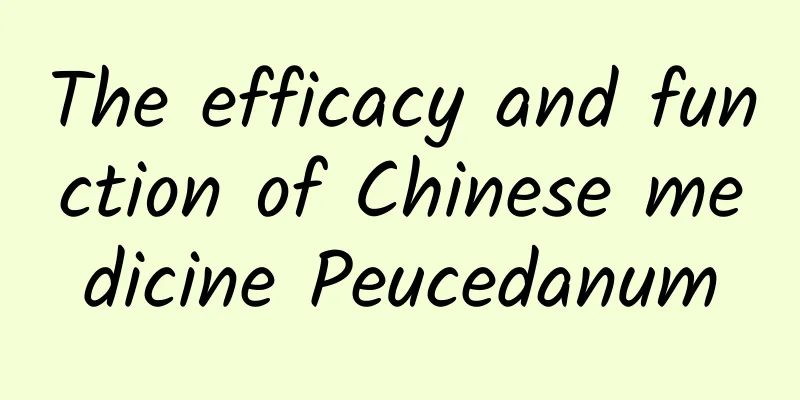What is the medicinal value of Northeastern ginseng?

|
There are three treasures in Northeast China: ginseng, sable fur and Ula grass. This is something many people know. Ginseng, in particular, is considered by many people to be the best gift and a good medicine for its excellent healing properties. Many diseases can be treated with ginseng. Many elderly people also often use ginseng to increase their body's resistance. So what is the medicinal value of Northeast ginseng? Let’s take a look at it together below. More than 30 kinds of ginsenosides (divided into three groups, namely oleanolic acid group, protoginsadiol group and protoginsenotriol group) have been isolated from red ginseng, raw sun-dried ginseng or white ginseng, respectively called ginsenoside (Ginsenoside)-RX (Note: X=0, a1, a2, a3, b1, b2, b3, c, d, e, f, g1, g2, g3, h1, h2, h3, s1, s2), and there is also pseudoginsenoside F11, etc. Saponins are the material basis of ginseng's physiological activity. When separating aglycones, due to the action of dilute acid, the hydroxyl group and olefin bond of the side chain of the molecule are cyclized to form ginsenoside and ginsenoside. Both ginsenoside and ginsenoside are triterpenoid compounds. Organic acids and esters include: citric acid, isocitric acid, fumaric acid, ketoglutaric acid, oleic acid, linoleic acid, maleic acid, malic acid, pyruvic acid, succinic acid, tartaric acid, ginseng acid, salicylic acid, vanillic acid, p-hydroxycinnamic acid, triglycerides, palmitic acid, tripalmitin, α,γ-dipalmitin, trilinolein, and glycosyl diglycerides. Vitamins include: vitamin B1, vitamin B2, vitamin B12, vitamin C, niacin, folic acid, pantothenic acid, biotin and niacinamide. Sterols and their glycosides include: β-sitosterol, stigmasterol, carotene, campesterol, ginsenoside P and sterols. In addition, ginseng also contains: adenosine converting enzyme, L-aspartic acid enzyme, β-amylase, sucrose converting enzyme; maltol, nonaconic acid, kaempferol, ginseng flavonoids and more than 20 trace elements such as copper, zinc, iron, and manganese. The saponin content of ginseng stems and leaves is basically the same as that of the roots. The total saponin content of ginseng roots, ginseng buds, ginseng leaves, ginseng flowers, ginseng fruits, etc. is higher than that of the roots, and is worthy of further utilization. The efficacy and function of ginseng 1. Ginseng tastes sweet and slightly bitter, and is slightly warm in nature. It enters the spleen, lung, heart, and kidney meridians. It has a strong and moistening effect, and it rises more than it descends. It has the effects of replenishing qi and strengthening the body, strengthening the spleen and lungs, calming the mind and improving intelligence, and nourishing blood and producing body fluids. 2. Ginseng is mainly used to treat serious illness, long-term illness, blood loss, dehydration caused by loss of vital energy, fatigue, weak pulse; spleen deficiency with poor appetite, fatigue, vomiting and diarrhea; lung deficiency with shortness of breath, rapid breathing, and weak cough; heart deficiency with insomnia, dreaminess, palpitations, forgetfulness, physical weakness and sweating; thirst and polydipsia due to lack of body fluid; sallow complexion and dizziness due to blood deficiency; kidney deficiency with impotence, frequent urination, and external infection due to qi deficiency. After knowing the medicinal value of ginseng, we can use it correctly in our daily lives. Although ginseng has good medicinal value. But it doesn’t mean that it can be used casually. Especially when it is used as a medicine, it is best to use it under the guidance of a doctor. Only in this way can the medicinal value of ginseng be maximized. So as not to cause other adverse consequences. |
<<: What are the taboos of Codonopsis?
>>: What are the medicinal values of animals?
Recommend
How do funhouse mirrors deform people? How does bulletproof glass resist bullets? The secrets of glass in our daily lives!
Glass is very common in our lives. Whether it is ...
The advantages and disadvantages of eating ginger in summer
You can eat radishes in winter, but people like t...
The efficacy and function of canna
What are the functions of canna? As a traditional...
The efficacy and function of five-color Ganoderma
Five-color Ganoderma lucidum is generally used cl...
Formaldehyde removal myth: Be careful of those who say "formaldehyde can be removed completely"
Formaldehyde is an indispensable part of modern i...
Can drinking mugwort water help you lose weight?
We all know that mugwort is a traditional Chinese...
When birds fly south, which “South” are they heading to?
Author: Yunhai Science Popularization The article...
Levi Flying: Common "Moving" Techniques Used by Flies
As the temperature rises, flies become more activ...
What are the medicinal values of Aloe arborescens?
Arborescent Aloe is a herbaceous plant. Perhaps m...
What is the role of centipede in traditional Chinese medicine
Centipede, also known as millipede or hundred-leg...
Millet丨Born and raised in my country, the first grain crop with a "heavenly book" is here!
Our country has a vast territory, rich resources,...
Production of tangerine peel
Tangerine peel is very common in life. It can be ...
Effects and functions of cold fern
There are so many medicinal herbs in the world, a...
Carrying the weight forward: the magical function of exoskeleton equipment
A normal adult has 206 bones in his body, and our...









